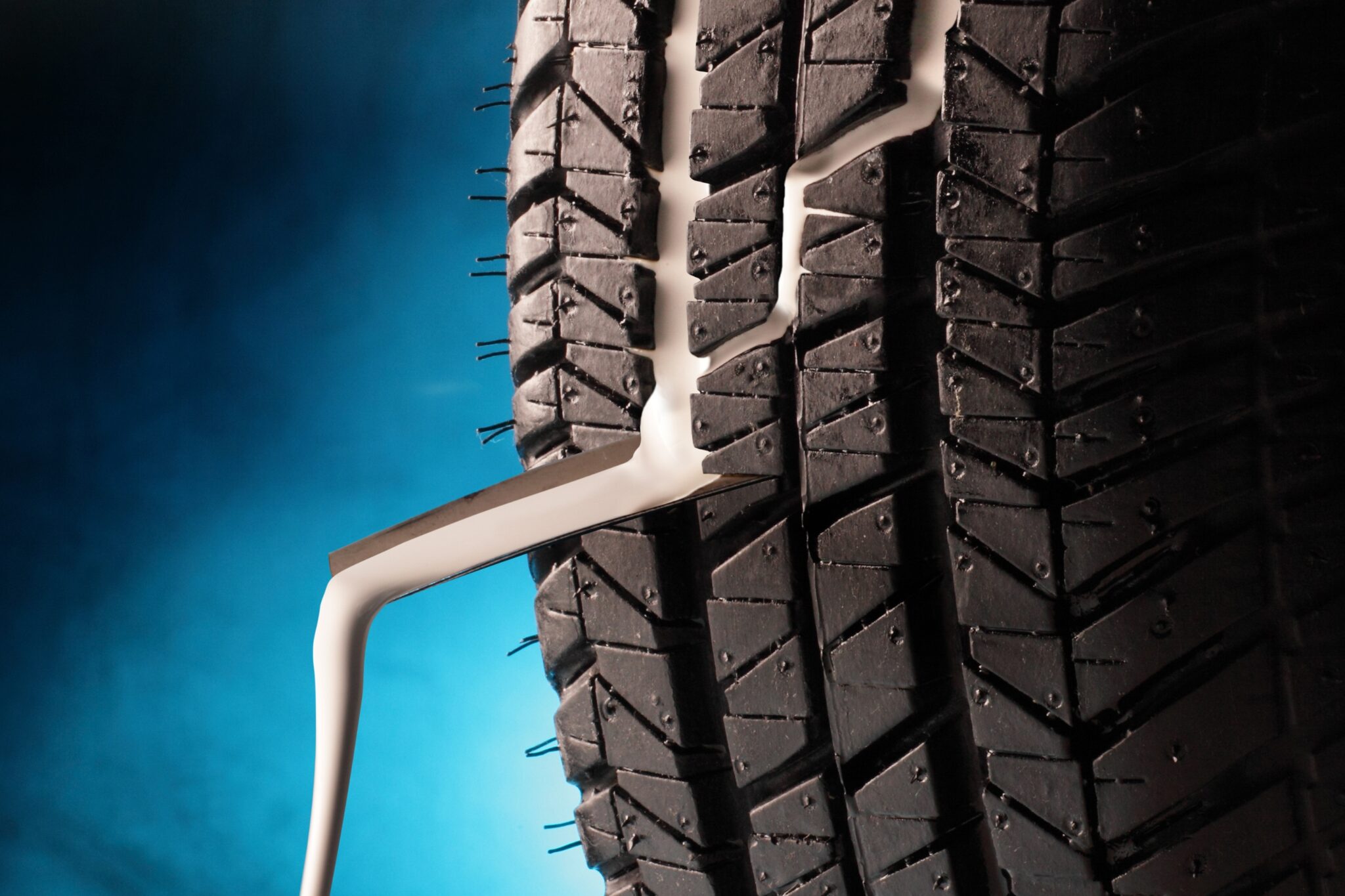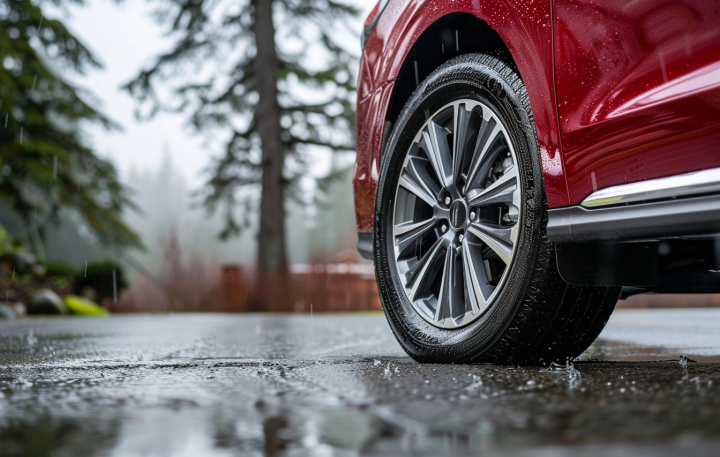Last Updated on July 26, 2025
Exploring the Versatility & Limitations of All-Season Tires
Are All-Season Tires Capable Of Handling All Weather Conditions?
This question often perplexes car owners seeking the perfect balance of convenience and safety. In this comprehensive guide, we delve deep into the world of all-season tires, uncovering their versatility, limitations, and the conditions where they shine. Buckle up as we explore the tire terrain!
When choosing the right tires for your vehicle, the selection can be overwhelming. All-season tires are marketed as a one-size-fits-all solution, promising reliable performance in various weather conditions. But are they indeed the master of all trades, or should you consider specialized alternatives? We’re here to answer that question and provide the information you need to decide about your car’s shoes.
The Versatility of All-Season Tires
All-season tires are often the default choice for drivers. Why?
Because they’re designed to provide balanced performance in different weather conditions, unlike summer tires, which excel in warm and dry weather, and winter tires, which are optimized for icy and snowy conditions, all-season tires aim to be jacks of all trades. They feature a unique tread pattern that combines elements of both summer and winter tires, making them suitable for various road conditions throughout the year.

1) The Design and Tread Pattern
To understand the versatility of all-season tires, it’s essential to grasp their design and tread patterns. These tires have a moderate tread depth and pattern incorporating straight and diagonal grooves and siping (minor zigzag cuts in the tread blocks). This design allows all-season tires to provide adequate traction on wet and dry roads, making them a solid choice for everyday driving.
2) Dry Road Performance
On dry roads, all-season tires typically perform well. They offer stable handling, an excellent cornering grip, and a comfortable ride. All-season tires may be all you need for everyday driving in mild climates or urban environments. They deliver a smooth, quiet ride, making your daily commute a comfortable experience. However, if you’re a performance enthusiast or live in an area with hot and dry summers, you might still benefit from summer tires during the warmer months.
3) Wet and Rainy Conditions
One of the strengths of all-season tires is their performance in wet and rainy conditions. The tread pattern and rubber compound are engineered to evacuate water efficiently, reducing the risk of hydroplaning. This means you can have confidence in your tires when driving through puddles or in heavy rain. All-season tires are a sensible choice for areas with frequent rain or mild, wet winters.
4) The Limitations of All-Season Tires
All-season tires have earned their place as a popular choice among drivers seeking versatility and convenience, but they are not without their limitations. In this section, we embark on a journey to explore the boundaries of all-season tires. While they offer commendable performance in various conditions, we’ll highlight their specific challenges, especially when confronted with the harsh realities of snow, ice, and extreme cold. By understanding these limitations, you’ll be better equipped to make informed decisions about your tire selection and ensure your safety on the road.
5) Snow and Ice Challenges
While all-season tires excel in dry and wet conditions, they face challenges regarding snow and ice. The tread patterns that make them effective in other states can be less effective in cold weather. All-season tires lack the deep, aggressive tread patterns and specialized rubber compounds that make winter tires the go-to choice for icy and snowy roads.
6) Extreme Cold Weather
All-season tires can become less flexible in frigid temperatures, reducing traction. When the thermometer dips below 45°F (7°C), the rubber compound in all-season tires begins to stiffen, impacting their ability to grip the road. This limitation is especially noticeable on icy surfaces, where winter tires with softer rubber compounds offer superior performance.
7) Off-Roading and Specialized Needs
For those with specific driving needs, such as off-roading or high-performance driving, all-season tires might not cut it. Off-road enthusiasts, for example, require tires with deeper treads and reinforced sidewalls for better grip and durability on rough terrain. Similarly, sports car owners might prefer summer or performance tires for enhanced cornering and braking capabilities.
Choosing the Right Tires for Your Needs
Selecting the right tires for your vehicle is a critical decision that can significantly impact your driving experience and safety. This section delves into choosing the perfect set of tires tailored to your unique needs and driving conditions. From considering your local climate and assessing the benefits of different tire types to understanding the importance of regular tire maintenance, we provide insights to help you navigate the often complex terrain of tire choices. Whether you’re facing unpredictable weather or specific driving demands, making the right tire choice starts here.

Understanding Your Local Climate
Your geographic location plays a crucial role in determining whether all-season tires are the right choice for you. Consider the annual weather patterns in your area. All-season tires may be a practical choice if you live in a region with mild, predictable weather and infrequent snowfall. However, if your area experiences harsh winters or extreme cold, you should consider switching to winter tires during the coldest months.
All-Season vs. All-Weather Tires
While all-season tires are versatile, all-weather tires are another option to consider. All-weather tires are designed to handle a broader range of weather conditions, including light to moderate snow. They offer a compromise between all-season and winter tires, making them suitable for regions with unpredictable weather.
Regular Maintenance and Care
Regardless of the type of tires you choose, proper maintenance is essential for optimal performance and longevity. Regularly check tire pressure, rotate your tires, and align them properly. This routine maintenance extends the life of your tires and ensures that they perform at their best in various conditions.
Conclusion
To find the perfect tire, it’s essential to answer the question: Are All-Season Tires Capable Of Handling All Weather Conditions? While these tires offer a versatile solution for many drivers, understanding their limitations and knowing when to consider alternatives is crucial. Whether you choose all-season tires or explore specialized options, your safety and driving experience are paramount.
FAQs
What is the disadvantage of all-season tires?
All-season tires, while versatile, may not provide optimal traction in extreme winter conditions, particularly on icy roads.
What conditions are all-season tires suitable for?
All-season tires excel in moderate climates with mild winters, offering reliable performance in wet and dry conditions.
Can you use all-weather tires all year round?
Yes, all-weather tires are designed for year-round use and are suitable for unpredictable weather.
How cold can all-season tires handle?
All-season tires are generally effective in temperatures above freezing but may lose traction and flexibility in extreme cold below 45°F (7°C), making winter tires a better choice.
-
Automotive Specialist
-
Proofreader
-
Writer









